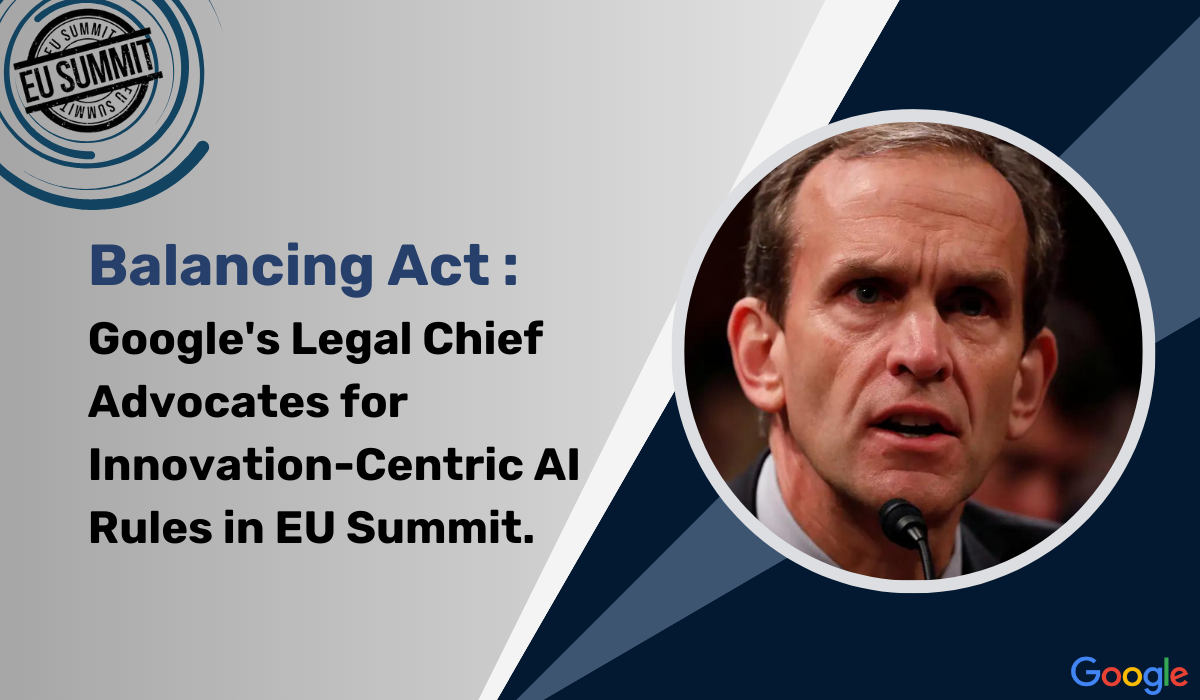
In a compelling address at the European Business Summit , Google's Chief Legal Officer, Kent Walker, emphasized the pivotal role of an innovation-centric approach in crafting legal frameworks for artificial intelligence (AI). As the European Union (EU) rushes to finalize AI regulations by December 6, Walker echoed the sentiments of numerous businesses and tech organizations, stressing the need for rules that foster innovation rather than impede progress.
The ongoing discussions among EU countries and lawmakers revolve around the last-minute details of a draft proposal put forth by the European Commission. A significant point of contention is the treatment of foundation models, exemplified by OpenAI's ChatGPT, which represents AI systems trained on extensive datasets, capable of learning from new information to execute diverse tasks. Walker urged European policymakers to aspire to the finest AI regulations, emphasizing that technological leadership necessitates a delicate equilibrium between innovation and regulation.
In his forthcoming speech, Walker asserted, "Technological leadership requires a balance between innovation and regulation. Not micromanaging progress, but holding actors responsible when they violate public trust." He highlighted the importance of hard trade-offs, such as those between security and openness, data access and privacy, and explain ability and accuracy. Walker advocated for proportionate, risk-based rules that build upon existing regulations, instilling confidence in businesses to continue investing in AI innovation. Notably, he cautioned against a rushed race for the first AI regulations, urging a focus on crafting the most effective rules for the burgeoning AI landscape. Last week, Digital Europe and 32 European digital associations echoed similar concerns, cautioning the EU against over-regulating foundation models in AI.
As the EU strives to establish a comprehensive and forward-looking AI regulatory framework, Walker's insights underscore the critical need for a balanced and thoughtful approach that promotes innovation while addressing ethical and societal considerations associated with the rapid evolution of artificial intelligence.